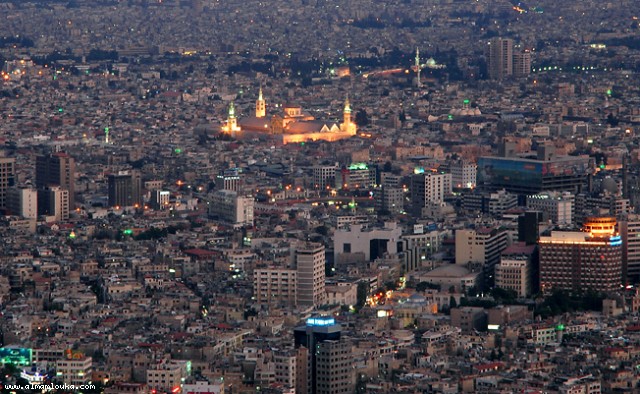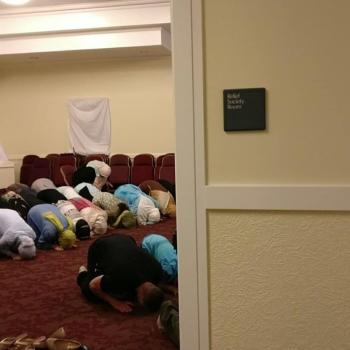
Every day, a bit more:
As Muslims began to realize the extent of Western technical and material superiority, they were often appalled. Islam was no longer at the cutting edge, no longer triumphant. Islam, it seemed, was losing ground. The impact was as if not at merely one general conference but at one after another after another, the announcement were to be made from the pulpit of the Tabernacle that we had actually lost members during the preceding year. That our missionary force had dropped, and our stakes were being disbanded. That we were having to sell chapels and maybe even our temples.
How would Latter-day Saints respond to such a disquieting situation? Some, perhaps many, would wonder if the Church were really true. They would wonder why the expectations they had about its future progress were so clearly unfulfilled. But I have no doubt that many would ask themselves what they and the other members of the Church had done wrong. How had we failed the Lord? What could we do to get back on track? More fasting? Deeper, more sincere prayer? A more careful obedience to the Lord’s commandments? Have we been too much taken with the fashions and values of the world?
Precisely this kind of soul-searching is currently happening among many Muslims around the world. It has been going on for some time. Why Did the Muslims Become Backward While Others Progressed? was the title of one book published in 1939.[1] Their answer tends to be much the same response that a Mormon would give. Indeed, at least one Latter-day Saint had already given that answer for them, years earlier. Elder George A. Smith, reflecting in 1855 on the history of the Muslims, concluded that “just as long as they abode in the teachings which Mahomet gave them, and walked in strict accordance with them, they were united, and prospered; but when they ceased to do this, they lost their power and influence, to a very great extent.”[2] We should not be surprised if Muslims themselves come to the same conclusion. It is, I am convinced, this anxiety over what has gone wrong, and this concern to make it right, that plays a major role in the current resurgence of Islam and in what has come to be called “Islamic fundamentalism.”
The hatred of the West that is so prominent a feature of Islamic fundamentalist movements comes, possibly, from insecurity (both perceived and real). It is interesting and highly significant that there seems to be no similar hatred of atheistic communism. Even while the Soviet Union was butchering Muslims in Afghanistan, it was American embassies that were destroyed by angry mobs in places like Pakistan. Even mere rumors of American activities allegedly against Islam were enough to bring out tens of thousands of angry protesters, while the brutally real activities of the Soviets brought very little response.
This may come from the love/hate relationship that many Muslims, and other nations, feel towards the United States. Very few people who traveled to the Soviet Union found it alluring. The big gray bureaucratic office buildings and cheerless apartments of Moscow, the vast and empty streets, the pervasive gloom, did not draw, they did not tempt. But the lifestyle of the West is tempting. It is seductive. And the people of the Near East are subjected to it constantly. They are reminded of it everywhere. They see it in the movies and on television. (The only time that I ever watched the TV series Dallas was on Cairo television. It was presented every night and was for me a somewhat pleasant bit of Americana.) The Arabs see images of it in their newspapers and magazines. Very likely, they have relatives or friends who live in Europe or North America or who have visited there. Perhaps they have studied at a Western university themselves.
[1] By Shakib Arslan.
[2] Journal of Discourses 3:34-35.












